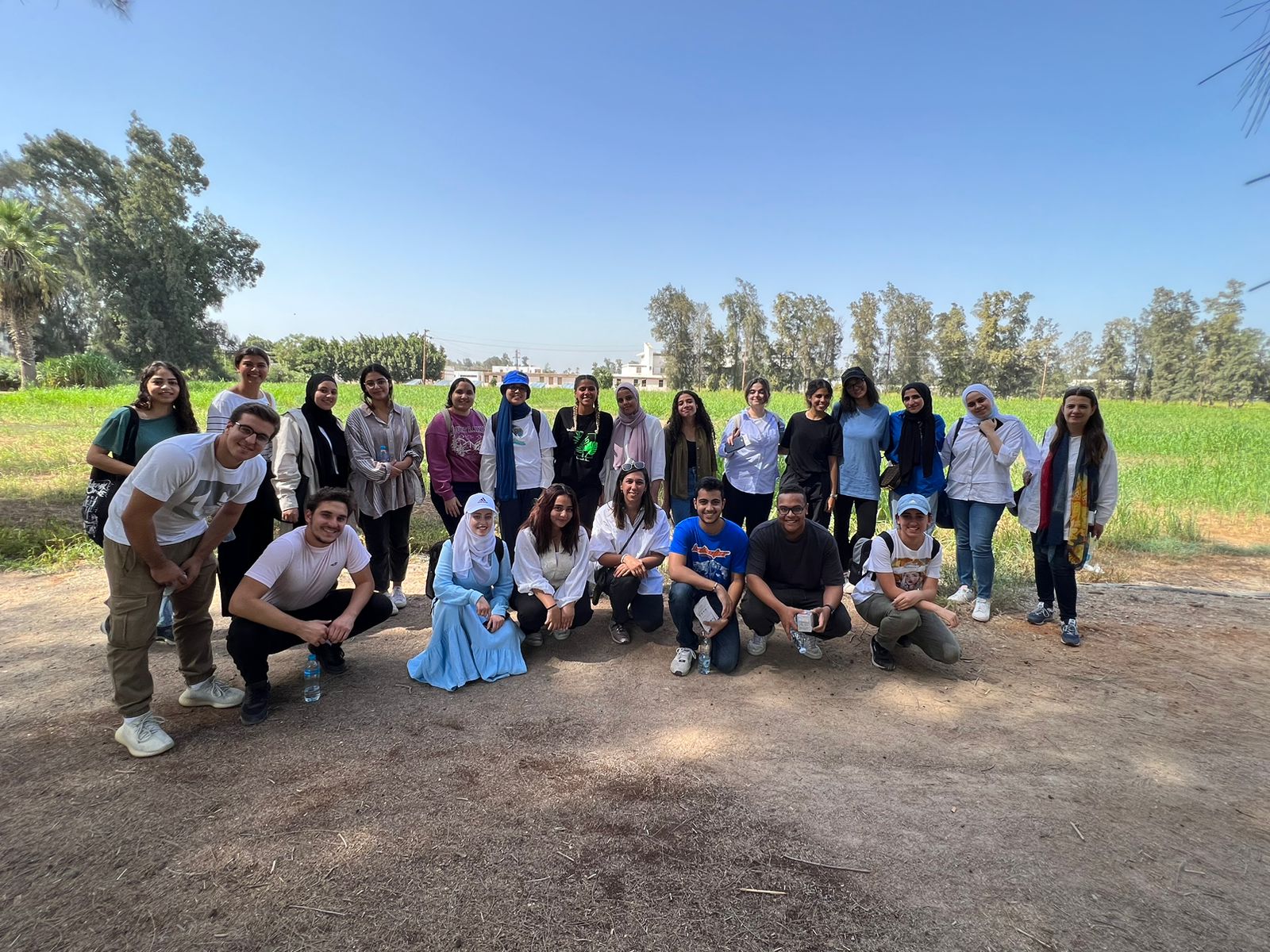“Make a career of humanity. Commit yourself to the noble struggle for equal rights. You will make a better person of yourself, a greater nation of your country, and a finer world to live in.” Martin Luther King
Community-Based Learning (or CBL for short) is a teaching methodology that advances course-learning goals through service to a partner community. Service learning is quite prevalent in Liberal Arts academic settings. According to the American University in Cairo (AUC) Academic Community Engagement (ACE) program, the CBL program envisions an engaged academic curriculum – one that acknowledges the value of and integrates community knowledge to strengthen student learning, while employing student competencies to address community-defined needs. The CBL Program empowers AUC students, faculty and partners to create community-engaging learning environments across the disciplines; environments which facilitate student academic excellence, personal growth and civic engagement, and help build sustainable community capital.
AUC School of Business’s course on labor economics (known among the students and faculty of the School as ECON 3071) is one of ten CBL courses offered by AUC at large. However, with the world coming to a standstill with the onset of COVID-19 in Spring 2020, the CBL component of this course was no exception. As an alternative back then, students worked on infographics depicting the sectors most affected by the global pandemic and the implications it had on the Egyptian labor market.
With vaccination rate surpassing 90 percent among the AUC community, life gradually returned to campus in Fall 2021. While observing social distancing measures along with the reduced class capacity, the students could not immerse in a full scale CBL experience. Yet, “if the mountain won’t come to Muhammad, then Muhammad must go to the mountain.” With this adage in mind and against all odds, as the faculty leading on the delivery of this course, we decided to pilot the CBL comeback in Spring 2022. So instead of the taking the students to the community, the community was brought to them on campus.
It was agreed to have 44 students, four teaching and research assistants, and the two faculty members work with Sawiris Foundation for Social Development (SFSD) in support of its policy and research agenda on the theme of youth (un)employment, a topic deliberated and discussed at length in class due to its prevalence at a rate higher than global averages in the MENA region (with Egypt being no exception). The AUC Center for Learning and Teaching (CLT) supported the students in unpacking their research findings through a design thinking workshop. Bringing valuable contributions, the final papers with the most relevant findings by the students were published by the SFSD in a blog post on its website.
As a matter of fact, “Community-based learning ECON 3071” course was a runner-up for the Best Lifelong Learning Initiative Award granted by the Association of MBAs (AMBA) and the Business Graduates Association (BGA) Excellence Awards for 2022.
Under the AUC slogan for CBL “it takes a village to raise a learner, a scholar and a citizen,” it was imperative to move from pilot to scale, coming with the complete lift of COVID-19 measures on campus. In Fall 2022, all the four labor economics sections that were offered- including four faculty member and 107 students- worked with SEKEM 13 Villages initiative – a project by private sector company SEKEM to develop the villages surrounding its farms, in partnership with Heliopolis University Rural Development Centre.
An introductory workshop took place in September 2022, followed by a human-centered research workshop run by the AUC Center for Learning and Teaching (CLT) prior to undertaking three field trips to meet farmers, teachers and women in the supported communities in Belbes in Sharqia governorate in October 2022.
The students brought their observations from the field coupled with their secondary research to a design thinking workshop facilitated by the CLT center to unpack their findings in November 2022. Following that, they worked on refining and finetuning their research to deliver 17 presentations in December 2022 to the representatives of the SEKEM Community as well as a team from Haya Karima Foundation. Of these presentations, six focused on education, three on agriculture, seven on women and one on waste management.
Reflecting on the experience Mohamed Anwar, director of Heliopolis University Rural Development Center said, “I am confident that one day in Egypt, university students will be key players for social transformation if we facilitate interactive engagement between them and societies and vice versa.”
Half of the students agreed or strongly agreed that the CBL experience was engaging while 75 percent of the students agreed or strongly agreed that the field trips were engaging. Taking the CBL experience to another level, at least two students applied to present their civil engagement experience at the AUC 17th Excellence in Undergraduate Research, Entrepreneurship and Creative Achievement (EURECA) conference taking place from March 12-16, 2023. Not only that, but many of the recommendations presented were taken up by representatives of the Presidential Initiative Haya Karima.
“Good education comes from hands-on experience and experience comes from interactive field visits,” added Gamal Heikal, project manager at Heliopolis University Rural Development Center.
Moving to full scale in the poorest villages nationwide, Haya Karima team expressed interest to partner with the AUC School of Business Department of Economics to have the students of the upcoming labor economics courses engage and enhance aspects related to economic and social empowerment of people supported by the initiative. Shana Masoud, international and foreign relations director at Haya Karima Foundation pointed that “Haya Karima Foundation is honored to highlight that the American University in Cairo sets a great example in fulfilling and promoting the concept of community-based learning of what is meant by student social responsibility. This [comes] in line with main notion of Haya Karima Foundation and Haya Karima National Project that highlights the importance of community and especially youth engagement in the philanthropic field, which reflects the essence of unification of efforts, which is the core value behind the continuity and the prosperity of sustainable development philosophy.” This is how the AUC School of Business Department of Economics strives to make better people of students, agreater Egypt and finer world to live in.
_____________________________________________________________

Amal Mowafy ’98 is adjunct faculty of economics at the AUC School of Business, and chief of party of the USAID Egyptian Pioneers program.

Dina Abdel Fattah ’06 is the chair of the Department of Economics, AUC School of Business









